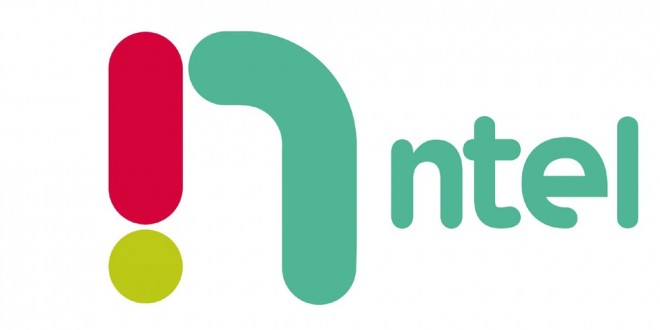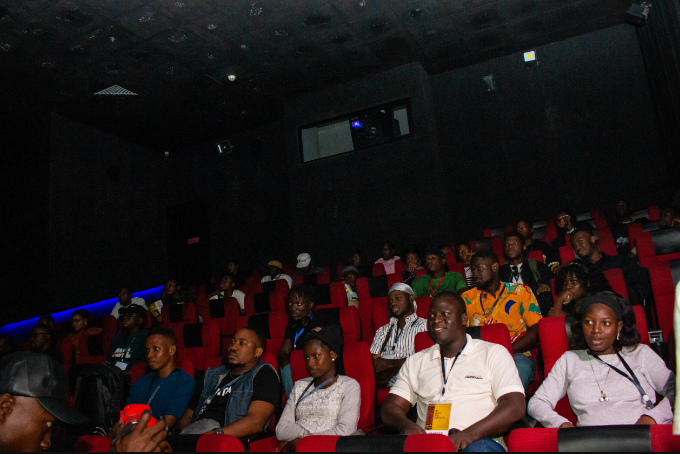My friend wasn’t happy with me last week. How can you be writing technology and you allow these operators to run away with my money? But how would I be clairvoyant to know your little fights with the operators?
My friend loves gizmos and is hooked on any organisation that promises good data bundles. So he found a good romance with NTEL which went on a swing until one day, there was no data bundle and NTEL couldn’t be found. His data subscription is hooked somewhere and so is his money and my friend is picking quarrels with the wrong people who were no party to the data odyssey.
He is not alone in his misery following his data loss. My other friend is an engineer who is a collector of routers perhaps because of his profession. He is one of the first I know to acquire an MTN 5G Router, a proud addition to his rich gizmo hold. He too is frustrated that NTEL did not even send any communications concerning his data contract that has ended abruptly.
Where is NTEL now? I was obviously blindsided by the history of NTEL which was unfair to most people my age. NTEL is the final makeup from the incessant name change of formal monopoly operator, NITEL, which failed to develop the telecommunications sector to the extent that I would not even touch a telephone until I got into the university. That was in the 80s. When I share the experience with my children now, they see me as a caveman.
Advertisement
NITEL is one of the failed enterprises of the Nigerian governments, mind you, not a particular administration, but since independence, a nasty justification that government has no place in business. Just like the power and energy sectors, the ghosts of failure have refused to be interred, they haunt us wherever we go in the nation.
But some governments did try to save NITEL, like raising the titanic, it was an impossible task. Nobody could conclude a purchase and pay, nobody could manage the organisation and make profit, NITEL remained a bad story without end but nobody wanted it dead. So, at the mobile auctions in 2001, NITEL had a reserved licence and this writer has no knowledge that it paid the $285m licence fee.
NITEL had a head start. It was a former monopoly and retained ownership of its assets across the country which infrastructure it was expected to make available to the coming operators. NITEL remained peacocked and refused to interconnect them or just actually used that refusal as an alibi to masquerade its inadequacies. It’s journey to a final place of rest was cemented.
Advertisement
Where is NTEL now? December 2014, NITEL was sold to NATCOM Consortium for $252.5m. It was a complete bundle which include but not limited to: licences and spectrum, national fixed wire network, the fibre optic transmission backbone, the national right of way duct system, international gateway earth stations, microwave transmission network, CDMA network system, MTEL GSM network, the SAT-3 international submarine cable system, and the many buildings and other assets across the country.
It was a total sale. Remember, the GSM licence cost $285m in 2001! And now NATCOM has the whole of NITEL in its pockets, an adjusted version of the world in your pocket. Great deal for smart business people.
Basking in a deserved euphoria, NITEL metamorphosed into NTEL (Nigeria Telecommunications) early 2015, its last known metamorphosis or perhaps a final stage of reincarnation and would later launch 4G/LTE services on the 900/1800 MHz spectrum. It was promoted as the first service of its kind to zap data at a speed never before experienced in a nation where phone users consume data like pure when it was cheap. My two friends swallowed the bait because it was more than attractive.
Where is NTEL now? I went to a place I thought I could have all the relevant information, the NCC website, www.ncc.gov.ng. Under Industry Statistics, the regulator says:
Advertisement
“Consistent with Section 89 Subsection 3(d) of the Nigerian Communications Act 2003 (NCA 2003), the Commission is mandated to monitor and report on the state of the Nigerian telecommunications industry, provide statistical analyses and identify industry trends with regard to services, tariffs, operators, technology, subscribers, issues of competition and dominance, etc. with a view to identifying areas where regulatory intervention would be needed;
“In view of this, the Commission regularly conducts studies and surveys and produces reports on the telecommunications industry, and telecommunications operators are obligated, under the terms of the licences, to provide the NCC with such data on a regular basis for analytical review and publishing.”
Presenting a dashboard of operator’s performance, the Commission informs that MTN has a market share of 37.35 percent with 81, 799,666 subscribers; Airtel is second with 28.93 percent and 63,357,061 subscribers; Globacom is third with 28.40 percent and 62,191,448 subscribers; while 9MOBILE occupies a distant fourth with 5.32 percent share of the market translating to 11,657,703 subscribers. This is the industry picture as at March 2024. There is nothing said about NTEL, yet it has a GSM licence.
NTEL is not on the dashboard of the NCC or is the Commission too blindsided to completely miss the performance of an operator with the world in its pocket?
Advertisement
But where is NTEL now? Two industry sources told this writer that when NTEL launched its 4G services in April 2016 with a promise to provide the best and most affordable data, leaving its 2G and 3G bands out, it was the wrong thing to do. Not many subscribers had handsets for 4G and NTEL was left in a lonely world where it had little connections with other operators.
“Not so many handsets could do 4G. The customers they have are data customers,” one of them said.
Advertisement
Although NTEL hardly shows up on the NCC radar, the operator ironically enjoys some level of regulatory comfort. A source told me that due to some deft negotiations, NTEL has not been paying Annual Operating Levy (AOL), Numbering Plan and Spectrum fees, which are the three primary sources the government and the regulator make money from the industry. Like NITEL, NTEL has its way with the government.
NCC says Section 89 Subsection 3(d) mandates it to monitor and report on the industry. Has it done that with NTEL?
Advertisement
Where really is NTEL and is it ever going to get back to its customers still holding on to their data bundles?
I don’t know about NTEL getting back to its customers but this much I know. NTEL is with the Asset Management Corporation of Nigeria (AMCON). Two industry sources told this writer that NTEL has ceased to exist as a corporate concern. They informed that when the organisation couldn’t pay its bills including interconnect and co-location charges to its business partners, they were simply unplugged and that put a final nail to their operations.
Advertisement
However, one was informed that AMCON kept an eye on the operations of NTEL in order to protect the government’s interest as a shareholder. And this turned out to be a rewarding watch as multiple industry sources confirmed that some top NTEL officials were more interested in stripping the assets of the organisation that are strewed all over the country. In the hands of AMCON, I am told, NTEL is safe, so are the assets but its services are as good as dead.
This is not the story my friends want to hear. They are looking forward to receiving their data subscription from NTEL. Unfortunately, that wait has to be forever.
But why would nobody ever report the travails of NTEL, not even the regulator? NTEL has failed the industry, indebted to so many business partners who are licking their fate right now. NTEL has left its subscribers stranded. There has to be a way the industry stakeholders are protected by the regulator. Otherwise, people are going to be asking, how many operators will have to suffer the fate of NTEL before the regulator takes action?
Views expressed by contributors are strictly personal and not of TheCable.







